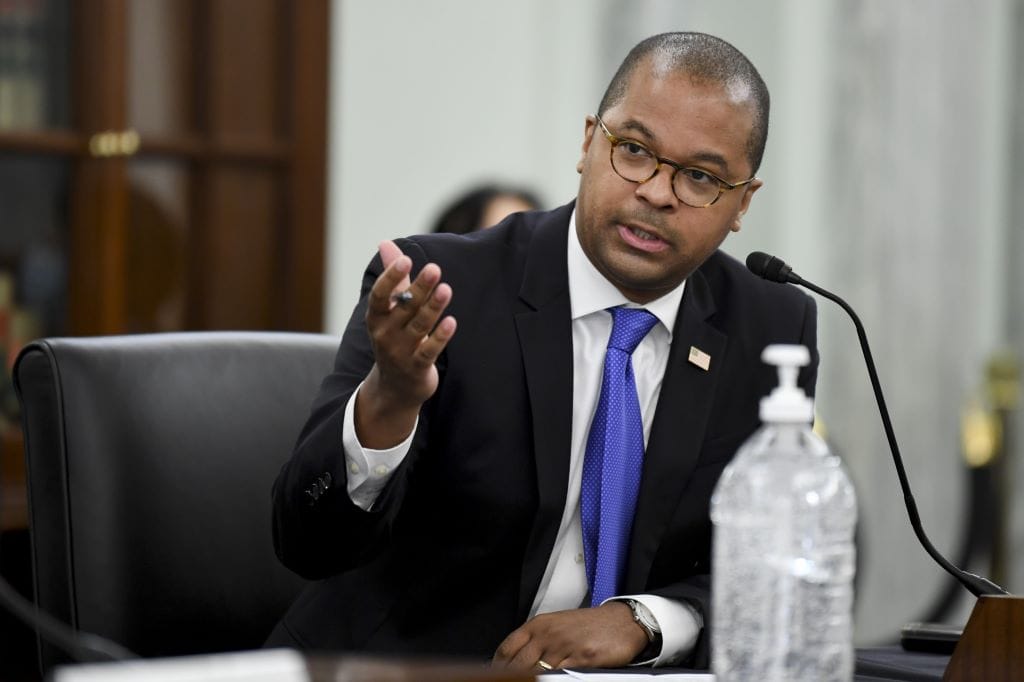FCC Commissioner Geoffrey Starks Calls for Environmental Sustainability at Summit
Environmental sustainability in telecom has been a key talking point for Starks.
Teralyn Whipple

June 27, 2022 – Federal Communications Commission Commissioner Geoffrey Starks raised on Monday the importance of sustainability in telecommunications as a speaker at the 2022 Broadband for All Summit in Stockholm, Sweden.
An important responsibility for agencies in the industry is building infrastructure that is environmentally sustainable, Starks said, suggesting four avenues to improve sustainability.
First, “we must continue to find ways to do more while using less, and that begins with the way we use spectrum,” he said. We need to “squeeze” the most out of the finite spectrum while simultaneously building networks that draw less power.
Second, “we need to realize our full potential to help other sectors consume less, too.”
We are entering an era where we can “collect, communicate, and analyze massive quantities of data to improve decision-making in real-time. Everything from traffic flow to energy transmission to orders of operation on the factory floor can benefit from data-driven efficiencies that were previously impossible,” he said.
Third, “industry-led initiatives must continue to play a significant role, from progressing towards reducing or eliminating the carbon emissions associated with their operations, to increasing renewable energy and minimizing electronic waste.”
Some manufacturers, according to Starks, have gone beyond carbon neutrality and are aiming for net-zero operations.
Fourth, “we must collectively do our part to mitigate climate change’s harmful effects at the network level”. With harsher weather patterns than previous generation, we should invest in networks that will keep communities connected during storms, floods, wildfires, and other disasters.
Starks, who has pitched environmental sustainability in telecommunications on a multiple occasions, advocated for players in the industry to be “as aggressive as possible with our climate commitments, and we should be as comprehensive as possible in our effort to comply with them.” This should include eliminating waste during the production phase, he said.








Member discussion